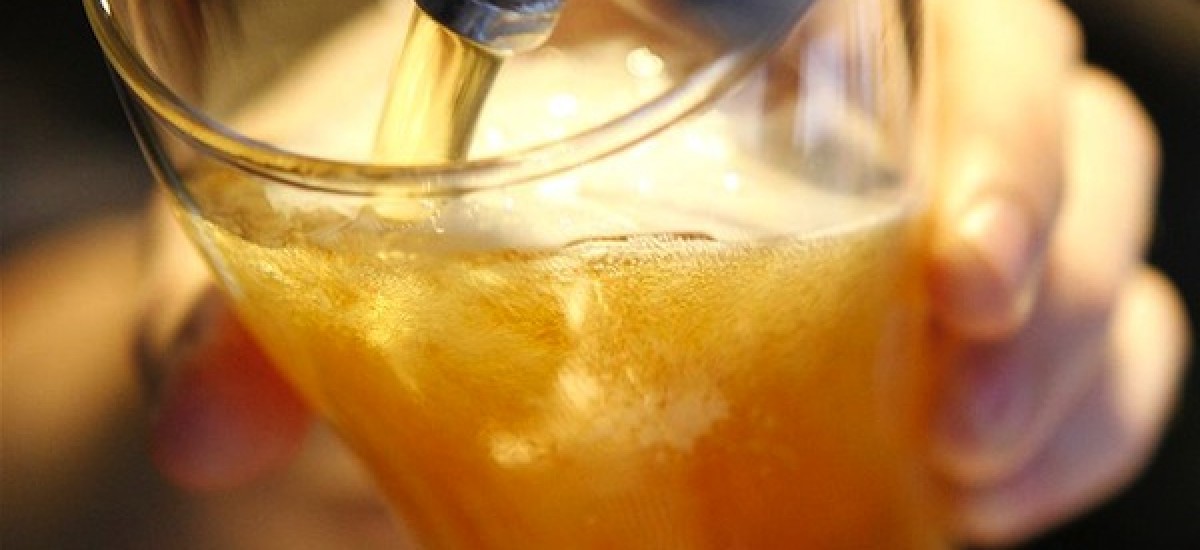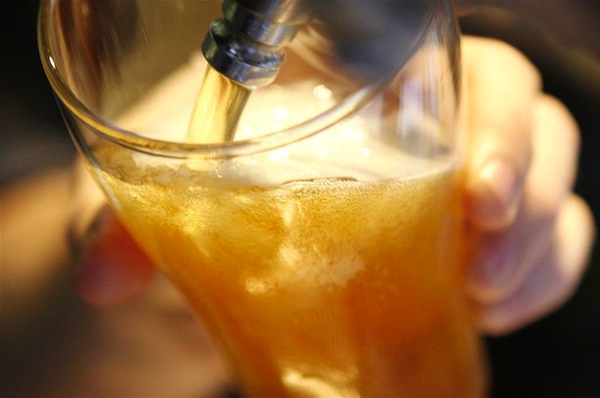Photo by Daniel Munoz/Reuters via ABC
Last weekend I received a call from a friend who was understandably outraged. On the way to her estate to join her husband who had been working there for some days, she was instructed by him to stop and buy a bottle of old arrack en route. She went to the Chilaw Food City only to be told that she cannot buy alcohol as she is female. She tried to argue the point as she had never heard of the law that was being put forward by the manager but he merely pointed to a sign which was in Sinhala pasted on the wall (obviously he had never heard of the official languages provisions in the Constitution) and said he was sorry but it was the law. In passing he said, if she brought a man with her, he would be able to sell the liquor to them, even if she paid! This might have been his attempt to subvert the alleged law and be helpful but it made my friend even more angry to be told this. Since then I have heard other stories of women being refused permission to buy liquor in supermarkets around Colombo.
On investigation I dug up the law from an on line article of the Sunday Times:
Excise Notification 447 of 29.4.1955: Section 12 (c): No liquor shall be sold or given to a woman within the premises of a tavern.
and
Excise Notification 417 of Ceylon Government Gazette No 100266 of 5.7.1951:
(b) Prohibits the possession by any female of any quantity of arrack or fermented toddy in any public place throughout the whole island except under the authority of a permit or pass duly granted under that Ordinance.
These laws passed soon after independence are outdated and chauvinistic. Long after the very countries that introduced these regulations to us, have dismissed these directives from their own law books, we still cling on to the vestiges of colonialism that contribute towards gender discrimination and double standards.
I am writing this because I think women should in fact be allowed to buy alcohol just like any Sri Lankan man can and that it is absurd to prohibit the possession of alcohol in a public place but also because over the years there has been an insidious shift in Sri Lanka’s attitude towards women.
A moral panic over women’s behaviour is slowly creeping across the country driven by the state but also other actors such as the clergy. We have heard of stories of requiring mothers to meet the principals of their children’s government schools dressed only in sari, of prohibiting mothers of children under 5 of seeking employment abroad, of attempting to impose a dress code on female university lecturers and of the recent denial of any domestic violence existing in Sri Lanka and as a result the irrelevance of a domestic violence law.
Under the guise of culture and tradition, Sri Lankan women are being increasingly forced to become second class citizens for in plain words this is gender discrimination. Arguments to the contrary that in the absence of these laws, Sri Lankan women would be found drunk wandering the streets or they would wear provocative clothes to enter schools or universities or that there will be an increase in the number of divorces by women due to the domestic violence act is simply absurd. They are as ridiculous as the parallel argument that if homosexuality was legalized that would be a concerted effort to brain wash children into being gay.
This is a plea to all female citizens and enlightened men of Sri Lanka that if we do not resist this pressure to conform to a particularly male ideal of how a woman should dress, behave, look etc we would lose all rights and privileges that we have gained. Of all the countries of South Asia Sri Lanka has prided itself on being the most woman friendly and the most progressive with regard to women. We boast about granting voting rights to women in 1931, of having had the first female head of state in the world, of a high female literacy rate and of a low female mortality rate. But if we continue in this vein we will limit freedom and rights for the women of Sri Lanka and I am not exaggerating. It will creep on us slowly and extensively, and if we do not take a stance now against anti– women legislation and attitudes that exist and various attempts to introduce new laws and regulations which seek to further restrict our freedom of choice, expression and mobility it will sadly be too late.
As for my title, it stems from a quick look at countries around the world proclaiming to be Islamic where women have little or no rights contrary to the teachings and spirit of Islam. I have noticed over the years that Sri Lanka has been veering towards a similar extremism most often reflected negatively on Sri Lankan women. It is a restriction of our society perpetrated by our very own government and the so called guardians of our culture. If we are not careful, we women will soon become second class citizens in our own country.
Welcome then, to the Islamic Republic of Sri Lanka.


